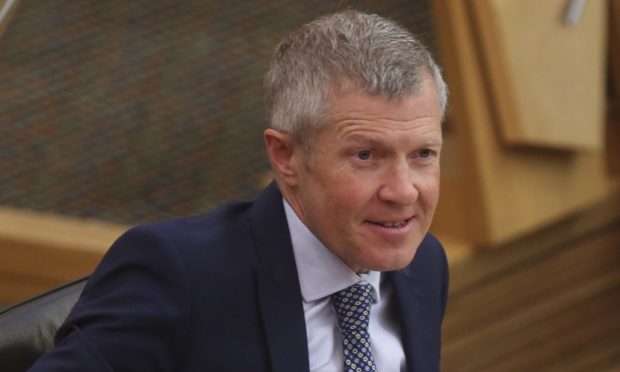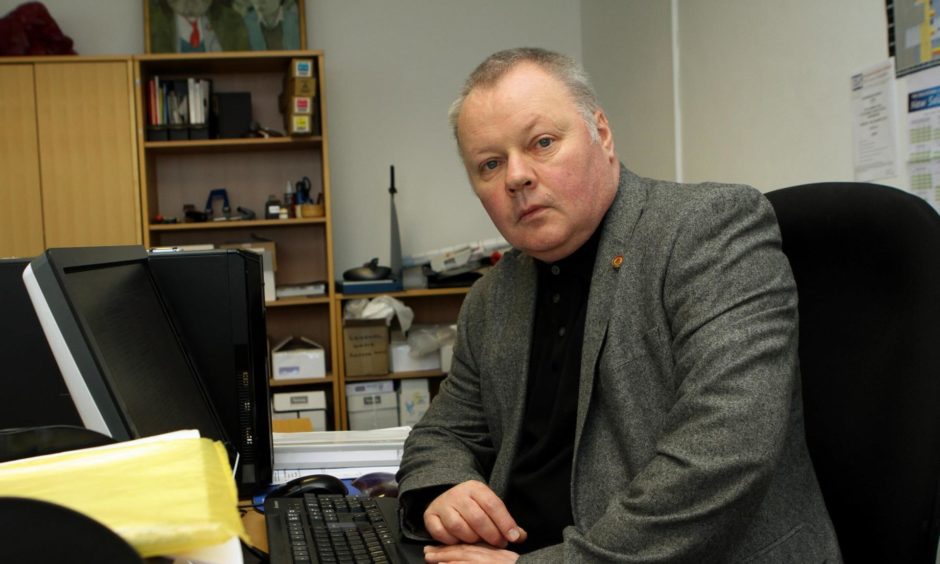
Scotland’s education bodies are “not fit for purpose” and in need of “substantial reform”, MSPs have claimed.
In a debate at Holyrood this afternoon, MSPs voted to back a Liberal Democrat led motion to reform the Scottish Qualification Authority and Education Scotland.
The motion called for Education Scotland to be separated into inspection and policy functions, as well as putting teachers at the heart of education governance.
During the debate, Labour’s education spokesman Iain Gray said that the performance of the governing bodies has “not been good enough” and that parliament had no confidence in them to be able to fix their problems.
However Education Secretary John Swinney rebuffed the criticism levelled at the bodies, saying it was “pathetic” and “shabby”.
MSPs backed the motion by 65 to 58.
The SQA came under fire last year after modifying teacher estimates of pupil’s grades, with claims the model used disproportionately disadvantaged poor students.
More than 133,000 results were adjusted, the vast majority were downgraded.
There was a 15% gap between the actual and estimated pass rates for children in the most deprived areas, compared to 7% for those in the least deprived areas.
Speaking after the motion was passed, Lib Dem leader Willie Rennie said: “We need the organisations in charge of Scottish education to get out of the way of teachers, and in must come an education system overseen by people with current and direct teaching experience.
“In this crisis teachers have been creative, dedicated, full of good ideas. They know what their pupils need. We can’t say that of Education Scotland and the SQA.”
Exams 2021: Formal tests detrimental to schoolchildren says SQA probe professor
The Scottish Greens also called for the removal of the board of the SQA to be the first part of a shake-up of governance in Scottish education.
Education spokesperson for the party, Ross Greer said: “The Greens have proposed a new board structure at the SQA. For a start, a majority of board members should be qualified teachers or lecturers.
“Time and again we have seen the SQA take decisions which make life harder for those actually delivering qualification in our schools and colleges.
“They don’t trust Scotland’s teachers, a feeling which is most certainly mutual.”
Calls for independent review to be published
The motion also called for the review by the Organisation for Economic Cooperation and Development (OECD) into Scotland’s secondary education system to be released.
The Scottish government was due to release the independent study in February but this has been delayed until after May’s Holyrood election.
This delay has been blamed on the Covid-19 pandemic.
Shadow education secretary, Conservative MSP Jamie Greene said: “The SNP’s decision to shove the OECD’s findings in a drawer and keep them from the public proves they are running scared.
“We know the OECD report’s draft findings are sitting on the education secretary’s desk right now.”
Willie Rennie added: “An interim report, untouched by ministers, should now be published so that the public can judge the SNP on their handling of Scottish education ahead of the forthcoming election.”
What are the teaching unions saying?
There was mixed reaction from teaching unions following the approval of the motion, with one leader claiming MSPs were playing “political football” with education.
Jim Thewliss, general secretary of School Leaders Scotland and a former Harris Academy teacher said: “It’s unfortunate and unhelpful that major organisations which are there to support Scottish education and young people are treated as a political football.
“It’s not helpful to the system and it’s not helpful to the organisations.”
David Farmer, of Fife EIS, said he was not surprised by the decision to back the motion but it noted the organisations were being judged on their performance during something they never planned for.
He said: “I think that over the period of the pandemic, the SQA and Education Scotland have seemed, at times, quite indecisive.
“I suppose you can argue that they are faced with a situation that they have never planned for and one they’ve never had any experience with.
“If you asked the SQA in August 2019 how they would deal with this, you wouldn’t have got many answers because it’s something nobody was expecting to happen.
As for any lessons education bosses in Scotland could learn from pandemic, Mr Farmer believes they may be a few years away.
He said: “I think that can only happen a couple of years down the line and whether hat produces a change in the way schools approach national assessments, I don’t know.
“I would hope that whatever comes out of it is a system that is more robust than the one we have just now.”

Enjoy the convenience of having The Sunday Post delivered as a digital ePaper straight to your smartphone, tablet or computer.
Subscribe for only £5.49 a month and enjoy all the benefits of the printed paper as a digital replica.
Subscribe
